“It’s all about modesty for me. As a Muslim, being modest is a major thing and I just wanted to showcase to everyone that you can be modest and be into fashion because the hijab itself – apart from representing Islam – represents beauty.”
Ikram Abdi Omar was the UK’s first hijab-wearing model to feature on the cover of Vogue at the age of 21 and became the face of Burberry in 2019.
The Swedish-born Somali model, now 23 and living in Bristol, said her heritage and religious beliefs have greatly influenced her modelling career.
“I like how everyone can express themselves differently and manage to portray a message with clothing alone,” she said.
“I believe my role in this industry embodies women’s empowerment itself, because it shows that women have the choice to dress however they like, whether that includes showing skin or not, and still feel brilliant.”
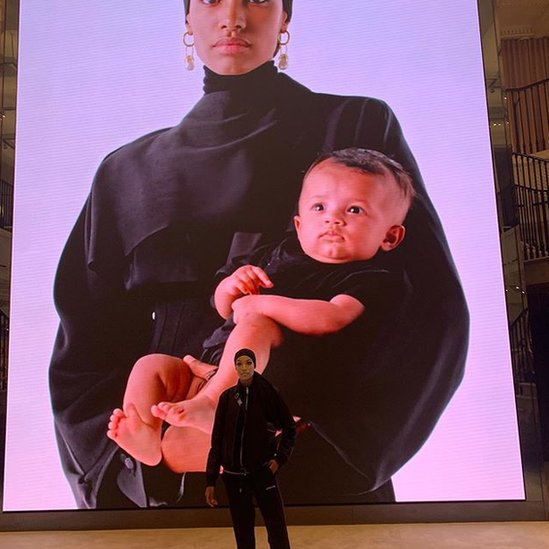
“The hijab itself is an extremely significant thing to me as it stands for modesty and beauty, it shows confidence and is a reminder that I have the choice to dress the way I want.
“In a more spiritual sense, I feel closer to God and more connected to Islam when I wear the hijab and that in fact has intensified over the years.”
Breaking the news to her relatives in 2018 that she would be quitting her biomedical science degree to pursue a modelling career prompted mixed reactions.
She said: “I feel like when grandparents hear the word modelling, they start to think of modelling that isn’t modest and it worries them.
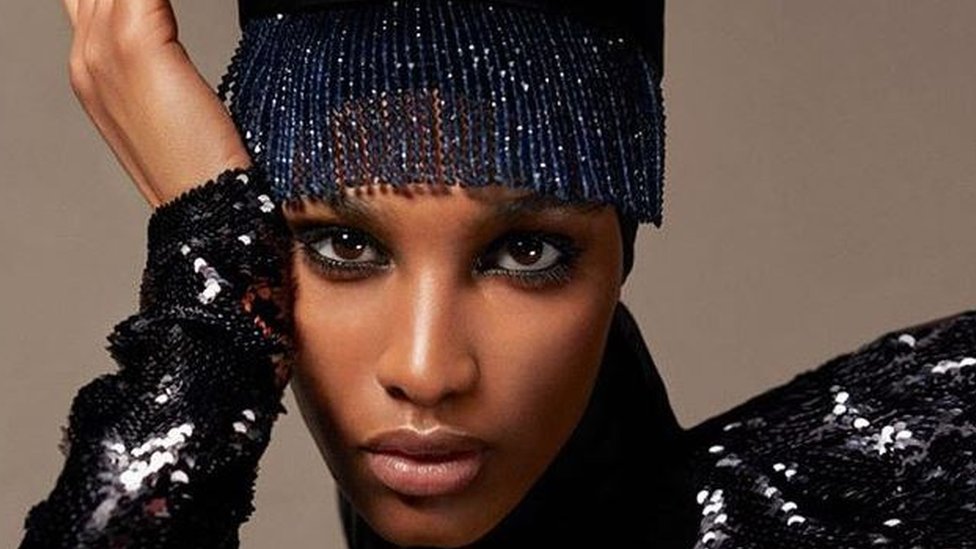 IMAGE COPYRIGHT: TXEMA YESTE
IMAGE COPYRIGHT: TXEMA YESTE“But with explanations about modest modelling, they are aware now and have seen images which puts them at ease.”
While her father, Abdi Omar, wanted her to finish the course at the University of the West of England (UWE), he has been supportive of her choice.
He said: “I think as long as it’s not compromising her religious beliefs, it was fine with me.
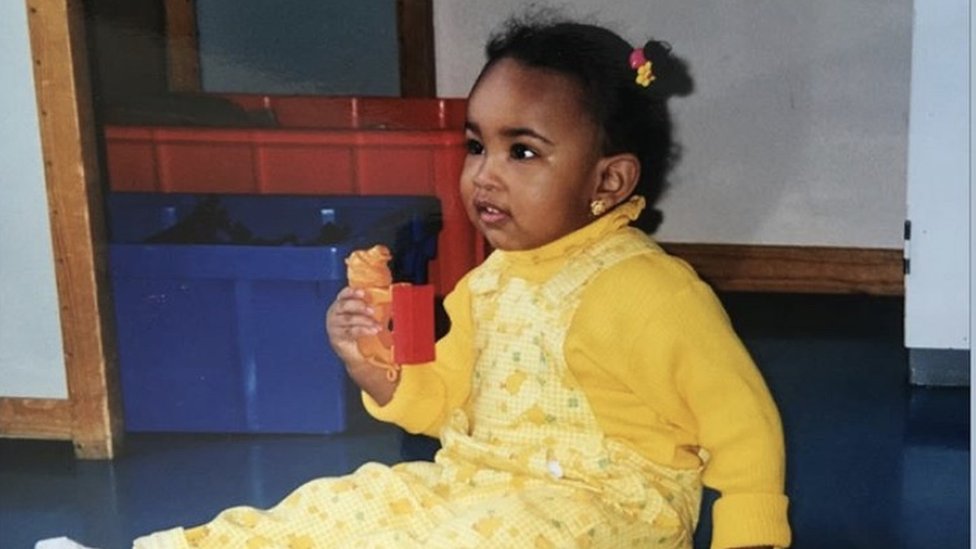 IMAGE COPYRIGHT: IKRAM ABDI OMAR
IMAGE COPYRIGHT: IKRAM ABDI OMAR“There were many people in the Somali community that questioned Ikram’s chosen career path but we had to explain.
“When we go back to our traditional roots, the older generation do not approve of anything to do with modelling or involving women being at the forefront in the public eye, but it’s important to educate them and highlight that if you have morals and values, the western society respects you.”
Being one of the first ever hijab-wearing models, Ikram has paved the way for women from the Muslim community to enter the modelling industry.
She said: “It’s exciting to see a new wave of young Somali models because I feel like I have more sisters that I can connect and share experiences with.
“We can all help support, learn and lean on each other because it can be very intense and draining with a schedule in this industry. We can get advice on how each of us copes with everything.
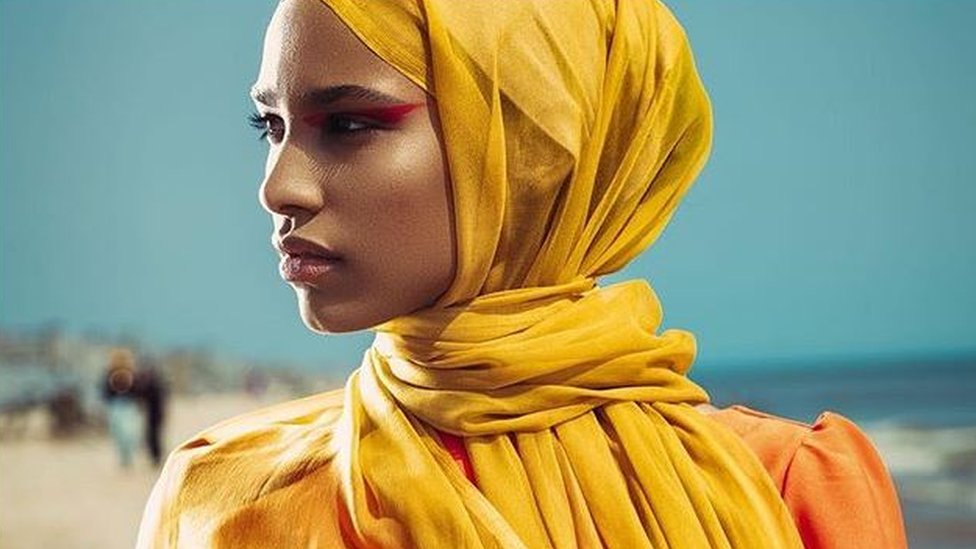 IMAGE COPYRIGHT: MCM LONDON
IMAGE COPYRIGHT: MCM LONDON“Stepping into a field where the hijab isn’t a common thing to see, it gives hope to younger girls that wear the hijab, showing them that heights can be reached no matter the race, gender, age or religion. As long as you stay true to yourself.”
Ikram has walked for the likes of Roland Mouret, Tommy Hilfiger, Molly Goddard, Iceberg, British fashion designer Richard Quinn, Juicy Couture and more. In November 2019 she was featured in the Burberry festive campaign depicting motherhood.
“I felt honoured to be able to portray how motherhood is the first view of courage and leadership to a child,” she said.
“My mother keeps me humble and discussions with her help me stay true to my beliefs.
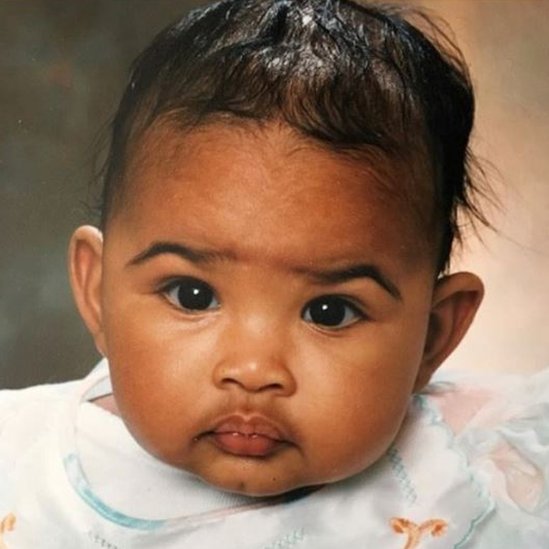
“I think it’s very important for children to feel that bond and have that sense of relationship with their parents.”
Her mother, Khadra Egeh, 50, said: “Growing up, Ikram was very talented, she always liked singing and dancing.
“When we were in Sweden and she was in nursery school, her teachers asked me if she could star in a film and I didn’t allow her because I didn’t want her to mix in the film industry and drift away from her culture and religion.”
Somali model Iman and supermodel Naomi Campbell have been Ikram’s inspiration.
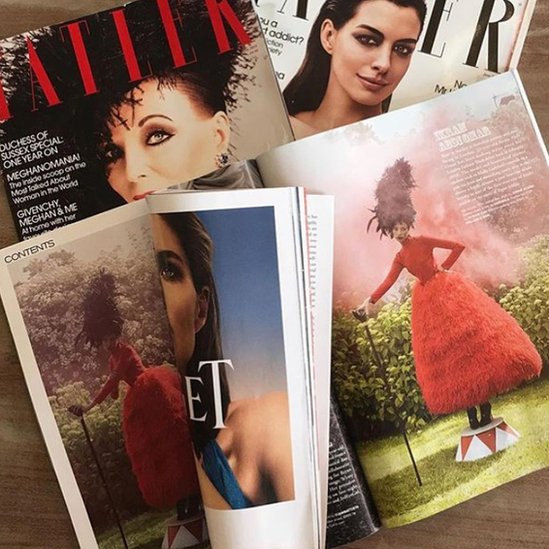 IMAGE COPYRIGHT: IKRAM ABDI OMAR
IMAGE COPYRIGHT: IKRAM ABDI OMARShe remembers the “major adrenaline rush” of walking alongside Campbell on the Tommy Hilfiger runway.
“I felt like I was representing a bigger role than just myself, but a community that has dreams and aspirations of reaching places in different industries, regardless of how they look,” she added.
Ikram was born in Husby, Stockholm and moved to Bristol in 2004.
Her modelling career began in the summer of 2018 when a casting director from Premier Models spotted her in Bristol’s Cabot Circus shopping centre.
The agency also represents Campbell.
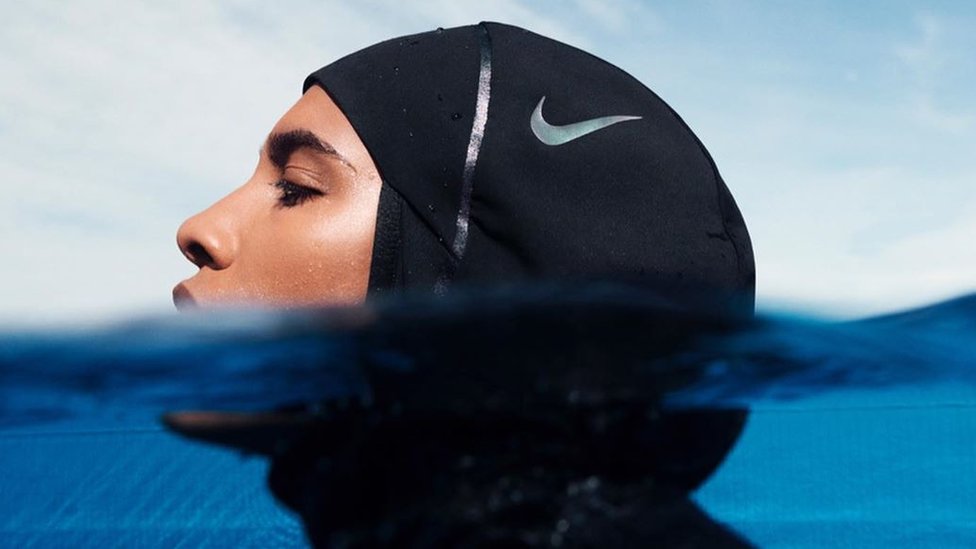 IMAGE COPYRIGHT: PAOLAKUDACKI
IMAGE COPYRIGHT: PAOLAKUDACKI“Growing up as a Somali, I used to look up to my mum and aunties.
“Our culture has such beautiful, colourful and detailed clothing which definitely has had a massive influence on my clothing style today and my interest in fashion as a whole.
“For instance, our traditional clothing called the Dirac – which is one of my personal favourites – and the baati that we wear at home which also has such fantastic patterns and colours.”
She says she has not faced any challenges in the industry “yet” due to her religious or cultural identity.
Ikram has a “my rules” segment in her contract which enables her to set boundaries that conform with her religious beliefs.
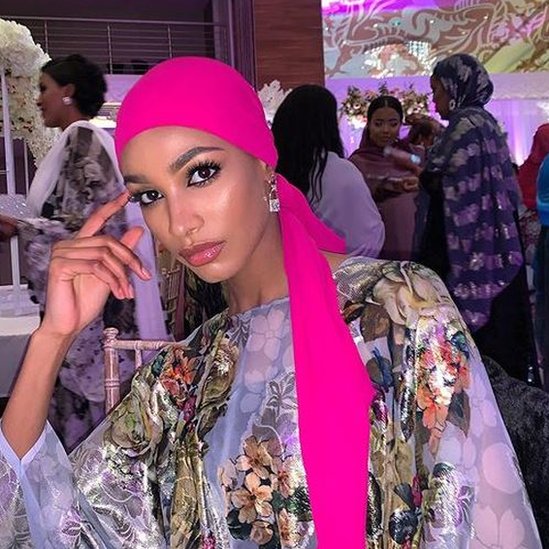 IMAGE COPYRIGHT: IKRAM ABDI OMAR
IMAGE COPYRIGHT: IKRAM ABDI OMARShe was also featured on Nike’s modest swimwear campaign, Victory Swim, in 2019.
“This campaign was a nice blend of being fashionable and modest which are both fundamental to my style,” she said.
“Being a part of something so revolutionary relating to the history of a company like Nike was right up my alley, full modest wear aimed at Muslim females, as opposed to blending my modest wear in with a brand.”
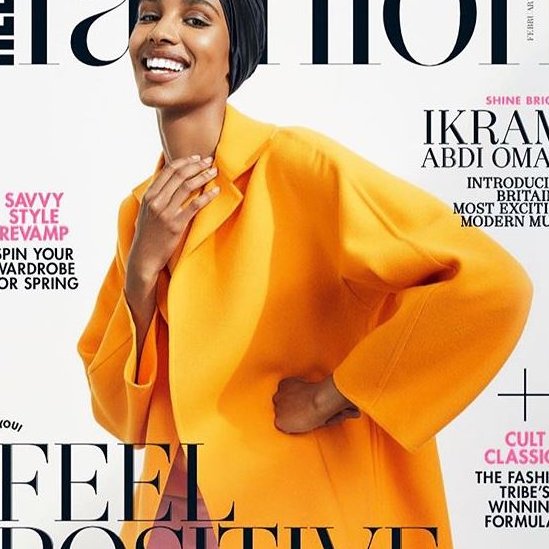 IMAGE COPYRIGHT: KATE DAVIS MACLEOD
IMAGE COPYRIGHT: KATE DAVIS MACLEODBorn in Djibouti, Ikram’s father came to England in 2004, having previously lived in Sweden.
He is proud of the “great connection” he has with his daughter.
“She always loved art, henna and at the age of five, she liked style and fashion and photography,” he said.
And he remains supportive of her career choice.
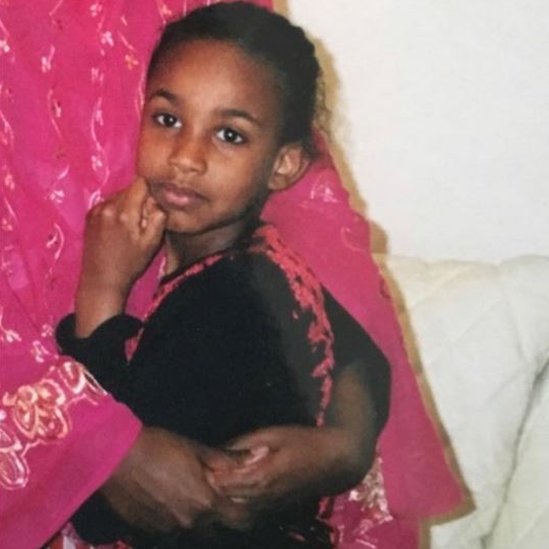 IMAGE COPYRIGHT IKRAM ABDI OMAR
IMAGE COPYRIGHT IKRAM ABDI OMAR“When both parents are educated they are often more open-minded and can share their lived experiences with their children.
“Carrying the name of Islam holds a very deep meaning and although modelling is not culturally accepted in our culture, as her father I had no doubt in her, there is a fine line that cannot be crossed.
“I taught her to love herself because to love yourself means you preserve, protect and respect yourself before anyone else and this is a foundation we built from her childhood.
“You can share your lived experience and try to make your child understand the consequences and reasoning behind why you don’t approve of something they may want.
“Understanding is key from both sides.”
By Osob Elmi
Source:BBC




























